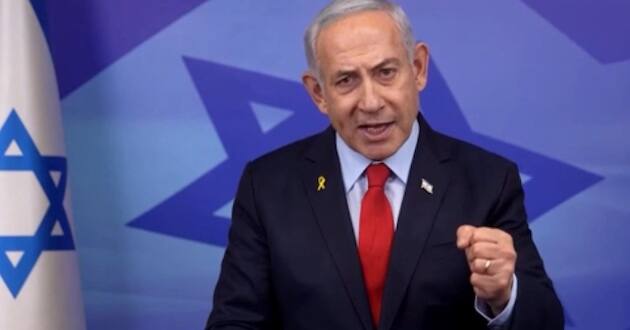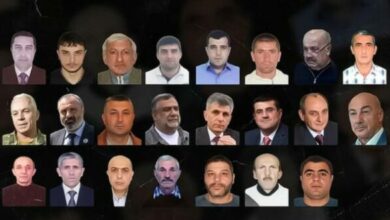Could Israel-Hezbollah ceasefire in Lebanon bring lasting peace?

A ceasefire between Israel and Hezbollah went into effect Tuesday evening. For Israelis, it offers a glimmer of hope that they could return to their homes. For Lebanese, it could signal the weakening of the Hezbollah terrorist group which retains a firm grip on much of the former French colony.
Others are not so optimistic, warning that the agreement will not hold, punching the region again into turmoil. The proposal outlines a 60-day gradual pullback of Israeli troops from southern Lebanon from which Hezbollah has been firing missiles into northern Israel and building tunnels in anticipation of a Oct. 7-style attack on the Jewish state.
The plan’s success relies heavily on trusting Hezbollah to disarm and expectation that a weak Lebanese central government with a nominal military, can maintain control over Hezbollah forces.
Avi Melamed is a seasoned Israeli intelligence expert in demand by news outlets and Middle East think tank discussions. He believes the ceasefire’s durability depends on the Lebanese government’s capacity to genuinely regain control over the terrorist forces of Hezbollah and the cessation of shipments of Iranian arms into the country via Syria. He cautions, “It is clear that Iran and Hezbollah will use this period following Israel’s withdrawal to replenish their stockpiles and restore Hezbollah’s military capabilities in southern Lebanon.”
Melamed draws parallels with the 2006 war between Hezbollah and Israel, suggesting that the Lebanese military and the United Nations might lack the resolve or capability to directly challenge Hezbollah, potentially enabling the group to entrench itself without opposition.
“Both the Lebanese army and UNIFIL are either unable or unwilling to confront Iran and Hezbollah directly, allowing them to fortify their positions unchallenged,” he states.
In fact, the expected agreement looks similar to the 2006 agreement which the UN never fully implemented, he cautions. Since then, the UN and its peacekeepers have turned a blind eye to the activities of Hezbollah and its terrorist partners.
The international community, especially France, Saudi Arabia and the UAE, will play a crucial role in bolstering Lebanese nationalists as they strive for dominance over the country’s broken political landscape. Melamed asserts that strengthening these groups is the only realistic route to sustainable peace with the dissolution of Hezbollah as a primary political force in the country.
The October 7 attack is a horrific example of the grave danger that Iran and its proxies pose, and Israel is likely to act decisively to protect its citizens from any renewed threat from Hezbollah and its financier, Iran.
In fact, Netanyahu said in a televised speech Tuesday that the success of a ceasefire would “depend on what happens in Lebanon.” He promised that Israel would resume attacking Hezbollah if it violated the agreement by rearming, digging more tunnels, launching missiles at Israeli cities, or rebuilding its terrorist infrastructure in Southern Lebanon.
The ceasefire could bring immediate if only temporary, relief, and the lasting impact is unclear as Israel continues to root out Hamas from Gaza. News outlets report that the Biden administration, Israeli lawmakers and other world leaders are in ongoing discussions about the agreement, with some voicing apprehensions about Hezbollah possibly remaining in power. Others, such as Avigdor Liberman, the leader of Yisrael Beytenu, contend that Israel should retain control over southern Lebanon as long as Hezbollah remains a menace.
With Israel still in a virtual state of war with Iran and Yemen, the Lebanese government reasserting control over the country will be helpful. One thing is clear, however, for enduring peace. The United States must continue its enduring commitment to Israel’s safety with necessary financial and military supply commitments.
Shy of all this, everyone suffers…again.
–Dwight Widaman | Metro Voice
This story was edited to reflect the ceasefire went into effect.
Dwight Widaman is editor of Metro Voice and founder of VisionIsrael.org, an educational nonprofit working to end antisemitism on college campuses and beyond.








